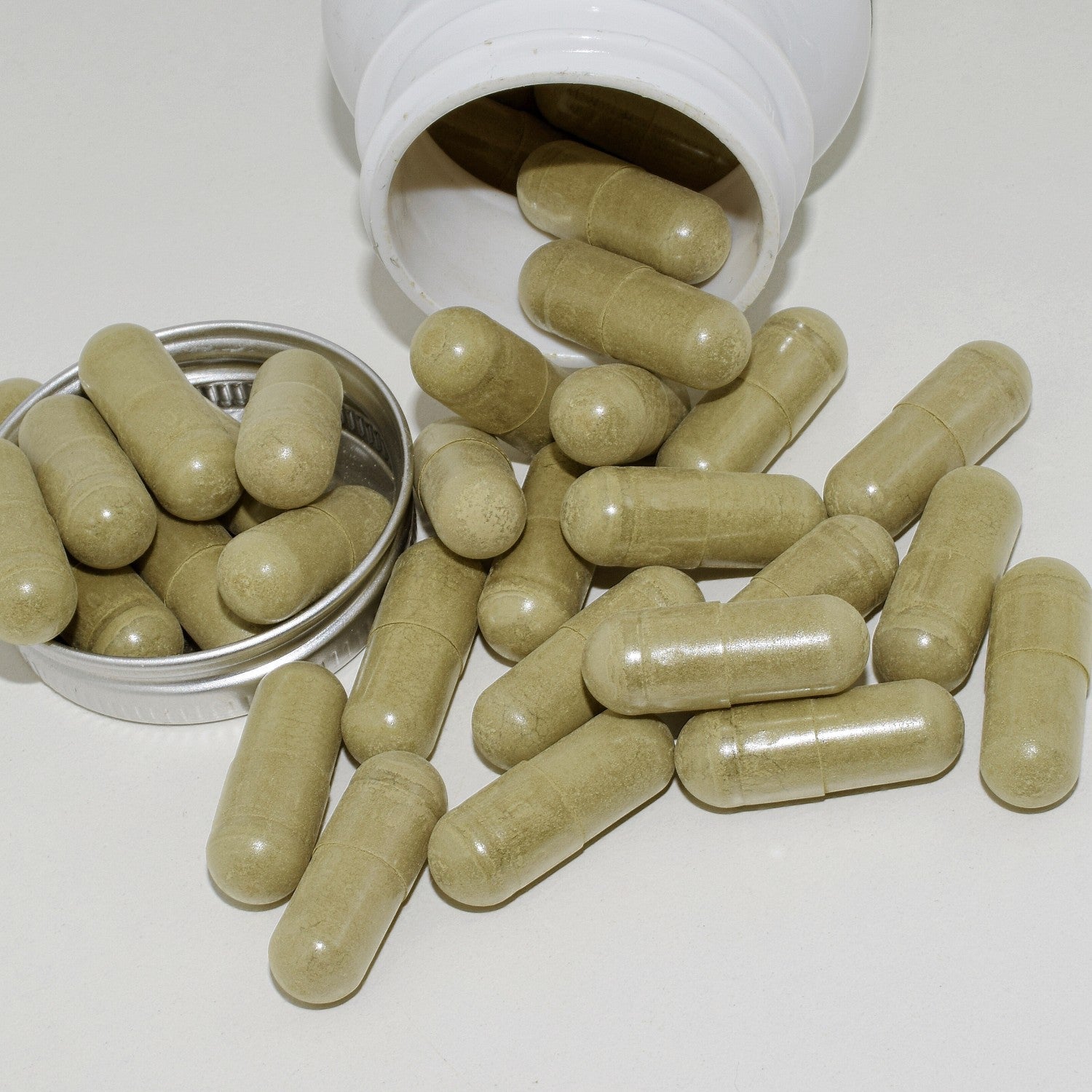Fruit and vegetable supplements have gained popularity as a convenient way to boost your nutrient intake and potentially increase energy levels. These supplements come in various forms such as green powders, capsules, and whole food concentrates, aiming to provide the nutritional benefits of fruits and vegetables in a concentrated form.
Do fruit and vegetable supplements truly provide the energy boost they promise?
Fruit and vegetable supplements, such as those in the form of powders, capsules, or tablets, aim to provide concentrated doses of vitamins, minerals, and antioxidants found in fruits and vegetables.
While these supplements can contribute to overall health and well-being by supplying essential nutrients, it's important to note that they don't directly provide energy in the way that macronutrients (carbohydrates, fats, and proteins) do.
Energy in the body is primarily derived from the calories obtained through the consumption of carbohydrates, fats, and proteins.
What Are Fruit and Vegetable Supplements?
Fruit and vegetable supplements are dietary supplements that aim to provide the essential nutrients found in fruits and vegetables in a concentrated form. They are available in various forms, including capsules, powders, and whole food concentrates, offering a convenient way to incorporate the nutritional benefits of fruits and vegetables into your daily diet.
Common Ingredients in Fruit and Vegetable Supplements
These supplements typically contain a variety of fruits and vegetables such as berries, leafy greens, and cruciferous vegetables. They may also include other ingredients like digestive enzymes and probiotics to support gut health and aid in nutrient absorption.
Benefits of Fruit and Vegetable Supplements
Fruit and vegetable supplements offer a convenient way to increase your daily intake of essential vitamins and minerals. They may also contribute to overall health and provide a natural energy boost, making them an attractive option for individuals looking to support their active lifestyles.
What Are the Benefits of Fruit and Vegetable Supplements?
Fruit and vegetable supplements offer a convenient way to incorporate essential vitamins and minerals into your diet, especially for those who struggle to consume an adequate amount of whole fruits and vegetables.
What Are the Benefits of Fruit and Vegetable Supplements?
Fruit and vegetable supplements can offer several potential benefits, especially for individuals who may struggle to meet their recommended daily intake of essential nutrients through whole foods alone.
Here are some potential benefits of fruit and vegetable supplements:
- Nutrient Intake: Supplements can provide a concentrated source of vitamins, minerals, and antioxidants found in fruits and vegetables. This can be particularly beneficial for individuals with limited access to fresh produce or those who have difficulty consuming an adequate variety of fruits and vegetables in their diet.
- Convenience: Supplements can be a convenient way to increase nutrient intake, especially for people with busy lifestyles or those who find it challenging to prepare and consume a variety of fruits and vegetables on a daily basis.
- Antioxidant Support: Fruits and vegetables are rich in antioxidants, which help combat oxidative stress and protect cells from damage. Antioxidants play a role in promoting overall health and may contribute to the prevention of chronic diseases.
- Immune System Support: Many fruits and vegetables contain vitamins and minerals that support the immune system, such as vitamin C, vitamin A, and zinc. Supplementing with these nutrients may help support immune function, especially during times of increased stress or illness.
- Heart Health: Certain nutrients found in fruits and vegetables, such as potassium and fiber, are known to contribute to heart health by helping to regulate blood pressure and cholesterol levels.
- Digestive Health: The fiber content in fruits and vegetables supports healthy digestion and may help prevent constipation. Some supplements include fiber to promote digestive health.
- Eye Health: Certain antioxidants, such as lutein and zeaxanthin, found in fruits and vegetables, contribute to eye health and may help protect against age-related macular degeneration.
It's important to note that while supplements can offer benefits, they should not be seen as a substitute for a balanced and varied diet that includes a wide range of whole foods. Whole fruits and vegetables provide a complex matrix of nutrients and phytochemicals that work synergistically, and it's challenging for supplements to replicate this entirely.
Additionally, supplements should be used in moderation, and individuals should consult with healthcare professionals before incorporating them into their routine, especially if they have underlying health conditions or are taking medications.

What Are the Most Common Ingredients in Fruit and Veggie Supplements?
These supplements typically contain a blend of whole fruits and vegetables, as well as green powders, and sometimes digestive enzymes to support overall health. Fruit and vegetable supplements come in various forms, including powders, capsules, and tablets. The ingredients in these supplements can vary widely depending on the product and its intended purpose.
However, some common ingredients found in fruit and vegetable supplements include:
- Vitamins: Supplements often contain vitamins such as vitamin C, vitamin A, vitamin K, and various B-vitamins (B1, B2, B6, B12, folate, niacin, pantothenic acid). These vitamins play essential roles in various physiological functions.
- Minerals: Common minerals found in fruit and vegetable supplements include calcium, magnesium, potassium, zinc, selenium, and trace minerals. These minerals are crucial for bone health, nerve function, immune support, and other physiological processes.
- Antioxidants: Fruits and vegetables are rich in antioxidants, and supplements may include these compounds for their potential health benefits. Common antioxidants include beta-carotene, lutein, zeaxanthin, quercetin, and flavonoids.
- Fiber: Some supplements include fiber derived from fruits and vegetables to support digestive health. Fiber is essential for maintaining bowel regularity and supporting a healthy gut microbiome.
- Enzymes: Some supplements may include enzymes such as amylase, protease, and lipase to aid in the digestion and absorption of nutrients.
- Probiotics: While not directly from fruits and vegetables, some supplements may contain probiotics, beneficial bacteria that support gut health.
- Herbs and Plant Extracts: Some supplements include extracts from specific fruits, vegetables, or other plant sources, such as green tea extract, grape seed extract, or acai berry extract. These extracts may provide additional bioactive compounds with potential health benefits.
- Mushroom Extracts: Certain fruit and vegetable supplements may include extracts from mushrooms, such as reishi, shiitake, or lion's mane, which are believed to offer various health-promoting properties.
It's crucial to read the product labels and understand the specific ingredients and their dosages in any supplement. Additionally, it's advisable to choose supplements from reputable brands, and consulting with a healthcare professional or registered dietitian is recommended before incorporating any new supplement into your routine.
Keep in mind that while supplements can be a convenient way to enhance nutrient intake, they should not replace a well-balanced diet consisting of a variety of whole foods.
What Happens to Your Body When You Eat Fruit and Vegetables Every Day?
Eating a variety of fruits and vegetables every day can contribute to improved energy levels and overall well-being due to the nutritional support they provide.
When you make a habit of consuming fruits and vegetables on a daily basis, your body undergoes a series of positive changes. These natural, nutrient-dense foods provide essential vitamins, minerals, and antioxidants that support overall health and wellbeing. Consuming a diverse array of fruits and vegetables can lead to improved digestion, increased energy levels, and enhanced immunity.
Additionally, the fiber found in these foods can aid in maintaining a healthy weight and reducing the risk of chronic diseases such as heart disease and diabetes. Moreover, the abundance of antioxidants in fruits and vegetables can help to combat inflammation and oxidative stress in the body, ultimately reducing the risk of developing certain cancers.
So, by incorporating fruits and vegetables into your daily diet, you are fueling your body with the essential nutrients it needs to thrive and function at its best.
What Fruits and Vegetables Give You the Best Energy?
While all fruits and vegetables contribute valuable nutrients to your diet, some are particularly known for providing a quick and sustained energy boost due to their nutrient content.
Here are some fruits and veggies that are known for their energy-boosting properties:
- Bananas: Bananas are a convenient and portable snack that provides a quick source of energy. They are rich in carbohydrates, particularly natural sugars (fructose and glucose), potassium, and vitamin B6.
- Oranges: Oranges are high in vitamin C and natural sugars, providing a quick energy boost. The fiber content also helps regulate blood sugar levels.
- Berries (e.g., blueberries, strawberries, raspberries): Berries are packed with antioxidants, vitamins, and fiber. The natural sugars in berries, along with the fiber, contribute to a steady release of energy.
- Apples: Apples contain natural sugars, fiber, and a mix of vitamins and minerals. The fiber helps slow down the absorption of sugar, providing a sustained energy release.
- Sweet Potatoes: Sweet potatoes are a complex carbohydrate rich in fiber, vitamins (such as vitamin A), and minerals. They provide sustained energy and help stabilize blood sugar levels.
- Spinach: Dark leafy greens like spinach are rich in iron, which is crucial for transporting oxygen to cells and tissues. This can help combat fatigue and boost energy levels.
- Kale: Kale is a nutrient-dense leafy green that provides a range of vitamins and minerals, including iron. It's also high in fiber, supporting overall health and energy.
- Quinoa: While technically a seed, quinoa is often used as a grain. It is a complete protein and contains complex carbohydrates, providing a sustained release of energy.
- Avocado: Avocados are rich in healthy fats, which contribute to sustained energy. They also contain vitamins, minerals, and fiber.
- Chia Seeds: Chia seeds are a good source of omega-3 fatty acids, fiber, and protein. When soaked, they absorb liquid and form a gel, providing a slow release of energy.
Remember, the key to sustained energy is to consume a balanced diet that includes a variety of fruits, vegetables, whole grains, lean proteins, and healthy fats. Eating a combination of these nutrient-rich foods helps regulate blood sugar levels, provides essential vitamins and minerals, and supports overall energy metabolism.
Best Fruit and Vegetable Supplements for Organic Diets
Additionally, staying hydrated is crucial for maintaining energy levels throughout the day. If you have specific dietary concerns or health conditions, it's advisable to consult with a healthcare professional or a registered dietitian for personalized advice.
Do Fruit and Vegetable Supplements Give You Energy?
Yes, fruit and vegetable supplements may contribute to natural energy levels due to the essential vitamins and minerals found in these whole food supplements.
Here's how fruit and vegetable supplements may indirectly contribute to energy:
- Vitamins and Minerals: The vitamins and minerals in fruit and vegetable supplements play crucial roles in energy metabolism. For example, B-vitamins (like B6, B12, and folate) are involved in converting food into energy at the cellular level. Iron, found in some supplements, is essential for oxygen transport and energy production.
- Antioxidants: Antioxidants, present in fruits and vegetables, help protect cells from oxidative stress. While they don't directly provide energy, they support overall health, which can influence energy levels indirectly by preventing cellular damage.
- Phytochemicals: Fruits and vegetables contain various phytochemicals with potential health benefits. Some may indirectly impact energy levels by supporting cellular function and reducing inflammation.
However, it's crucial to note that the energy obtained from these supplements is related to overall health and cellular function rather than providing immediate energy in the form of calories. For direct energy, your body relies on the calories derived from macronutrients in your diet.
Supplements Can Help in Providing Energy
These supplements can play a role in maintaining energy levels as part of a balanced and healthy diet. Supplements can be a beneficial addition to a healthy lifestyle when it comes to providing energy. While a balanced diet is essential for obtaining the necessary nutrients, supplements can help fill in any gaps and ensure that the body has the fuel it needs to function optimally.
Whether it's a vitamin B12 or iron deficiency, certain supplements can play a crucial role in boosting energy levels. Additionally, specific herbal supplements like ginseng and rhodiola have been shown to improve stamina and reduce fatigue. For individuals with busy schedules or those who engage in intense physical activities, supplements can be a convenient way to maintain high energy levels.
Are Fruit and Vegetable Supplements Good for You?
It's important to note that supplements should not serve as a replacement for a healthy diet but are meant to complement it. Consulting with a healthcare professional before incorporating supplements into one's routine is crucial to ensure they are taken in a safe and effective manner.

Energy Boost and Nutritional Support
Fruit and vegetable supplements provide an energy boost while offering nutritional support, making them a valuable addition to a healthy lifestyle.
Energy boost and nutritional support are essential for maintaining optimum health and wellness. In today's fast-paced world, many individuals struggle to find the time and resources to properly fuel their bodies. However, prioritizing proper nutrition is a crucial step in ensuring that the body has the necessary resources to function at its best.
Incorporating a balanced diet, rich in essential vitamins, minerals, and nutrients, can provide the body with the energy it needs to power through daily tasks and activities.
Additionally, utilizing targeted supplements can further enhance the body's ability to perform at its peak. Nutritional support also plays a vital role in supporting the body's immune system and overall well-being.
By ensuring that the body has access to the necessary fuel and resources, individuals can experience improved energy levels, mental clarity, and overall vitality. Taking proactive steps to prioritize energy boost and nutritional support can have a profound impact on one's quality of life and long-term health.
How Do Fruit and Vegetable Supplements Provide Energy?
Fruit and vegetable supplements do not directly provide energy in the form of calories, as they typically contain minimal amounts of macronutrients like carbohydrates, fats, and proteins. Instead, these supplements contribute to energy metabolism and overall well-being through the micronutrients they provide—such as vitamins, minerals, antioxidants, and other bioactive compounds. Here's how these components contribute to energy-related processes in the body:
- B-Vitamins for Energy Metabolism - B-vitamins, including B1 (thiamine), B2 (riboflavin), B3 (niacin), B5 (pantothenic acid), B6 (pyridoxine), B7 (biotin), B9 (folate), and B12 (cobalamin), play essential roles in energy metabolism. They are involved in converting the macronutrients from food (carbohydrates, fats, and proteins) into usable energy at the cellular level.
- Antioxidants for Cellular Protection - Antioxidants found in fruits and vegetables, such as vitamin C, vitamin E, and various phytochemicals (e.g., flavonoids, carotenoids), help protect cells from oxidative stress. This protection is crucial for maintaining the health and function of cells, including those involved in energy production.
- Minerals for Enzyme Function - Minerals like magnesium, iron, zinc, and manganese are essential cofactors for enzymes involved in energy metabolism. These minerals facilitate chemical reactions that release and utilize energy from nutrients.
- Phytochemicals and Adaptogens - Some fruit and vegetable supplements may contain phytochemicals and adaptogens, which are bioactive compounds that may support overall energy balance and help the body adapt to stress. Examples include polyphenols, found in foods like berries and green tea.
- Natural Sugars for Quick Energy - While fruits and vegetables naturally contain sugars (e.g., fructose, glucose), the amounts in supplements are typically low. These natural sugars can provide a quick source of energy, although the overall caloric contribution is minimal.
It's important to emphasize that the energy obtained from fruit and vegetable supplements is indirect and related to supporting the body's metabolic processes. They are not a substitute for the calories derived from a balanced diet that includes a variety of whole foods. Additionally, the benefits of these supplements are better realized when they complement a well-rounded and nutrient-rich diet.
How Fruits and Vegetables Supplements Boost Your Health?
If you're looking for sustained energy, it's essential to focus on consuming a variety of whole foods that provide the necessary macronutrients (carbohydrates, fats, proteins) in appropriate amounts.
Always consult with a healthcare professional or a registered dietitian before incorporating supplements into your routine, especially if you have specific health concerns or conditions.

